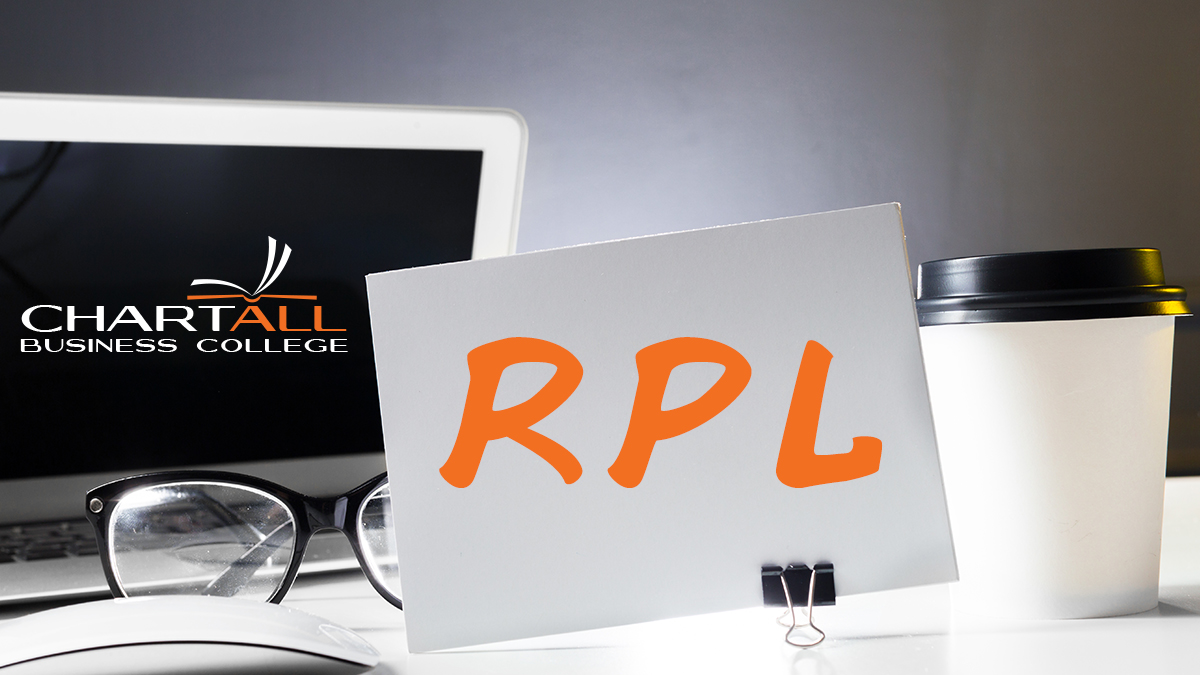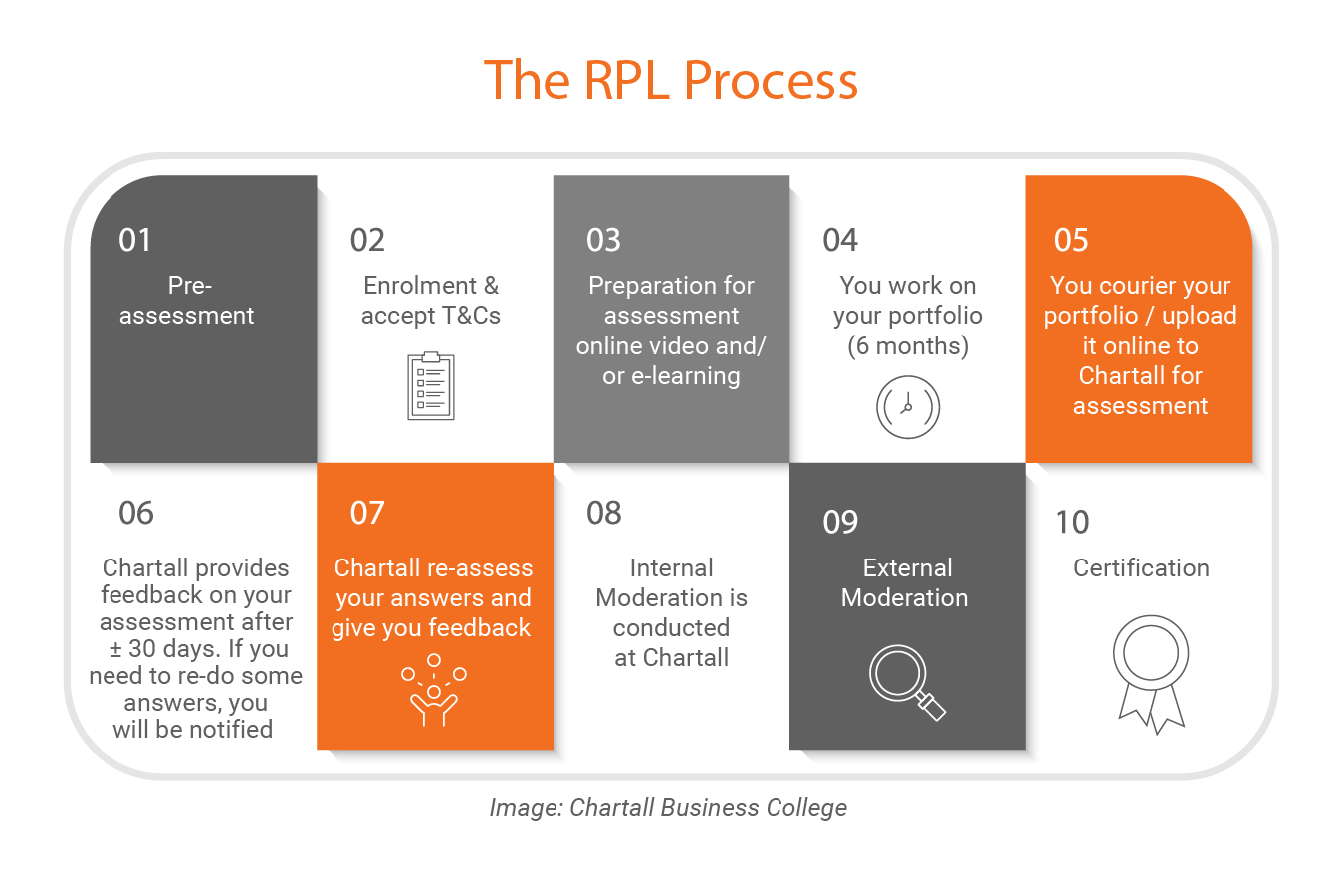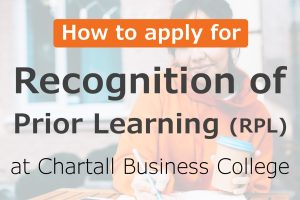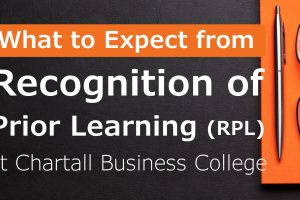A Comprehensive Guide to Recognition of Prior Learning (RPL)

In today’s tough job market, having a formal qualification can open doors to exciting opportunities and better career prospects. But let’s face it, not everyone can afford the time or money for traditional training. That’s where Recognition of Prior Learning (RPL) comes in!
In this article, we’ll dive into the world of RPL, learn how it works, demystify the assessment process, explore why it’s so crucial, and figure out who the perfect fit is for this game-changing approach. Get ready to discover the power of Recognition of Prior Learning as we unlock your true potential!

What is Recognition of Prior Learning?
RPL offers a distinctive pathway to attain a full or parts of a qualification without the need for conventional education and training. The fundamental principle underlying RPL is the belief that individuals possess valuable knowledge and learning from their work and life experiences. As a result, they have the opportunity to showcase their competence by following a different route compared to formal studies.

Here’s the fascinating aspect: an RPL candidate and someone who went through traditional classes end up achieving identical qualifications. The only difference lies in the learning approach.
With RPL, you forego the necessity of attending classes, and instead solely focus on demonstrating your skills through evidence that proves your competence. It’s like a personalised express lane to qualification attainment, sparing you the conventional training process.
This exceptional approach to education paves the way for inclusivity, catering to those who cannot commit to traditional training due to time constraints or other obligations. RPL empowers individuals to unlock their potential and reach for their aspirations.
How Does Recognition of Prior Learning Work?
The RPL process at Chartall Business College is designed to be both structured and supportive, ensuring candidates have a clear and effective path to earn their qualifications. Before enrolling in the RPL programme, candidates undergo a pre-assessment to determine their suitability for the specific qualification they wish to pursue through RPL. This step helps identify the ideal candidates who possess the necessary workplace learning and experience to succeed in the assessment process.

What happens once you have enrolled for RPL?
Once enrolled, candidates are provided with comprehensive guidance on how to compile their Portfolio of Evidence (PoE). The PoE is a crucial component of the RPL assessment and includes answering knowledge and assignment questions while providing supporting evidence from their workplace experiences. In some cases, candidates may need to undertake additional assessments to prove competence.
What do you need to know as an RPL candidate?
As a candidate, your responsibility in the RPL process is vital to its success. Firstly, it is crucial to complete your portfolio within the agreed-upon timeframe, typically six months from the time of enrolment. While the college recommends submitting within four months to allow time for remediation if needed, adherence to the agreed timeframe is essential.

Maintaining integrity throughout the process is essential. Avoid seeking direct answers from your mentor, as they are there to guide and support rather than provide solutions. It is crucial to be honest and genuine in your portfolio, as Chartall Business College assessors may verify information and question you about the evidence provided. Plagiarism, such as copying from the internet, is not acceptable and may result in the termination of the RPL contract as per the terms and conditions.
Being proactive in your learning journey is another key aspect. If you encounter questions that require further understanding, do not hesitate to conduct research and seek out relevant information. Remember that RPL is an adult education process, and taking ownership of your learning is fundamental to its successful completion.
By understanding the roles and responsibilities of each player in the RPL process, candidates can embark on their RPL journey with confidence, knowing they have the support and guidance needed to achieve their qualification goals. With dedication and determination, Recognition of Prior Learning opens doors to new possibilities and empowers individuals to embrace their full potential.

The assessment process for RPL is centred around the Portfolio of Evidence (PoE), a comprehensive file that serves as a showcase of the candidate’s capabilities relevant to the desired qualification. This assessment method is designed to ensure that RPL candidates undergo a rigorous evaluation comparable to those who have completed traditional training.
Pre-assessment to Determine Eligibility:
Assessing individuals to determine their eligibility as Recognition of Prior Learning (RPL) candidates follows a structured and thorough process. Before enrolling, potential candidates undergo a pre-assessment to evaluate their suitability for RPL in a specific qualification. The pre-assessment aims to gauge the extent of the candidate’s workplace experience, knowledge, and skills relevant to the desired qualification. This step ensures that RPL candidates possess the foundational background necessary for the successful completion of the RPL assessment.
By evaluating the candidate’s existing expertise, the pre-assessment helps chart a personalised learning pathway, guiding candidates toward the most appropriate qualifications and modules identifying areas where additional support may be beneficial.
Portfolio of Evidence (PoE) Compilation:
The RPL assessment process commences with candidates compiling their Portfolio of Evidence. The PoE is a compilation of responses to specific questions and tasks that reflect the candidate’s understanding and practical application of the qualification’s subject matter. These questions are carefully designed to encompass various aspects of the qualification and allow candidates to demonstrate their competence.
Showcasing Workplace Experience:
One of the primary advantages of RPL is that it recognises the value of workplace experience. Candidates are encouraged to provide extensive evidence of their practical application of knowledge and skills in a real-world setting. This evidence may include work-related projects, reports, work samples, training courses attended or any other documentation that showcases the candidate’s expertise within the context of the qualification being pursued.
Demonstrating Understanding of Theoretical Concepts:
While workplace experience is essential, theoretical knowledge also plays a vital role in the assessment process. RPL candidates are expected to demonstrate their understanding of relevant theoretical concepts associated with the qualification. The assessment may include written responses to theoretical questions, which allow candidates to showcase their grasp of foundational principles and concepts.
Optional Examinations:
In some cases, specific qualifications may require additional assessments, such as examinations, to ensure a thorough evaluation. These additional assessments, when necessary, are designed to maintain the same level of rigour as traditional training methods.
Integrity and Verification:
Maintaining the integrity of the RPL process is of utmost importance. Chartall Business College conducts thorough verifications of the information provided by candidates in their portfolios. Assessors may reach out to candidates to verify the accuracy and authenticity of workplace evidence and other submitted materials. It is crucial for candidates to be honest and transparent in their submissions to uphold the credibility and fairness of the RPL assessment.
Timeframe and Completion:
Candidates are granted a specific timeframe to complete their Portfolio of Evidence, typically six months from the date of enrolment. However, the college recommends submitting within four months to allow ample time for potential remediation if needed. Adhering to the agreed-upon timeframe is essential to ensuring a structured and efficient RPL assessment process.
Why is Recognition of Prior Learning Important?
Recognition of Prior Learning (RPL) holds significant importance for individuals and organisations, offering a valuable opportunity to bridge the gap between real-world experience and formal education. For candidates, RPL serves as a recognition of their skills and knowledge acquired through work and life experiences. It provides a pathway for them to leverage their workplace expertise and convert it into a recognised qualification.
For organisations, RPL offers a strategic advantage by acknowledging and valuing the expertise of their employees. It fosters a culture of continuous learning and professional development, motivating employees to enhance their skills and contribute more effectively to the organisation’s success.
RPL also contributes to building a more inclusive and diverse workforce. It recognises skills and competencies acquired through various life experiences, not just formal education. This approach promotes equality and provides opportunities for individuals from different backgrounds and diverse learning experiences to access meaningful qualifications and career progression.
What is an Example of Recognition of Prior Learning?
Meet Alex and Emma, two dedicated professionals working in the field of management.
Alex’s Journey:
Alex, a proactive and ambitious individual, who decided to pursue formal education to advance his career in management. He enrolled in the National Certificate in Generic Management (NQF 5) program offered by Chartall Business College. Throughout the program, Alex attended interactive classes, workshops, and practical sessions that covered a wide range of management concepts, including strategic planning, team leadership, and organisational development.
With dedication and hard work, Alex completed all the required assessments and projects, demonstrating a strong grasp of management principles and practices. He actively engaged with his peers and instructors, exchanging ideas and gaining valuable insights. As a result, Alex successfully achieved the National Certificate in Generic Management (NQF 5), solidifying his knowledge and credentials in the management domain.

Emma’s Journey:
Emma, a skilled and experienced manager, had been working in various management roles for several years. While she had accumulated extensive practical knowledge, Emma lacked a formal qualification. Recognising the value of her experience, Emma explored Recognition of Prior Learning (RPL) as an alternative pathway to obtaining the National Certificate in Generic Management (NQF 5).
After undergoing a pre-assessment process, Emma’s suitability for the RPL programme was confirmed by Chartall Business College. With the guidance of her assigned mentor, she embarked on the RPL journey. Emma compiled a comprehensive Portfolio of Evidence, showcasing her managerial expertise, achievements, and successful projects she led throughout her career.
During the RPL process, Emma had the opportunity to engage in discussions and seek support from her mentor, ensuring she addressed all the required competencies for the qualification. Her mentor provided guidance on interpreting questions and recommended additional readings to further expand her understanding of theoretical concepts.
The assessors at Chartall Business College thoroughly reviewed Emma’s Portfolio of Evidence and recognised the depth of her knowledge and her ability to apply management principles effectively. As a result, Emma was granted the National Certificate in Generic Management (NQF 5) through the RPL programme, validating her years of practical experience and expertise in management.

Both Alex and Emma successfully achieved the National Certificate in Generic Management (NQF 5) through different pathways. Alex’s formal education equipped him with theoretical knowledge, while Emma’s RPL experience validated her practical expertise. Whether through formal education or RPL, both pathways lead to the same qualification, acknowledging their competence as effective and skilled managers.
What Does the Ideal RPL Candidate Look Like?
The ideal RPL candidate possesses specific characteristics that contribute to their success in the assessment process. These include being PC literate, having strong written and reading skills in English, possessing about five years of relevant work experience, reflecting on and understanding their workplace learning, and being structured and time-efficient to complete the RPL within the designated timeframe.
Although RPL is open to anyone, it is important to recognise that certain individuals are more likely to excel in the process. Successful RPL candidates often possess the following key characteristics:
- Technologically Proficient: RPL candidates should be PC literate and adept at using email, word processing software, discussion groups, and internet research skills.
- Strong Written and Reading Skills: A solid command of the English language, ideally with at least a grade 12 certificate, is crucial for effective communication and comprehension during the RPL process.
- Relevant Work Experience: Successful candidates typically possess about five years of experience directly related to the qualification they are seeking through RPL.
- Application of Learning: RPL candidates should demonstrate meaningful learning from their five years of work experience, showcasing their ability to reflect on their actions and comprehend the underlying reasons for their decisions.
- Organised and Committed: Being structured and dedicated to the RPL journey is essential. Candidates must allocate about five hours per week to complete the requirements within the agreed six-month period. (Please note: You have a total of six months to submit your portfolio. Failure to do so within this timeframe may result in the lapse of your contract)
- Pursuit of Relevant Short Courses: Attendance of relevant short courses demonstrates the candidate’s commitment to continuous learning and staying updated in their field of expertise.
- Actively Engaged in the Sector: Candidates currently employed in the relevant sector have an advantage in RPL, as their ongoing involvement ensures practical knowledge and familiarity with industry trends.
By embodying these key characteristics, RPL candidates can set themselves up for a successful and rewarding journey towards acquiring their desired qualifications.
Conclusion
In this comprehensive guide to Recognition of Prior Learning (RPL), we’ve explored the alternative education pathway that bridges the gap between workplace experience and formal qualifications. RPL allows candidates to achieve a full or parts of a qualification without attending traditional training. Through a structured process, candidates compile a Portfolio of Evidence showcasing their expertise, and after rigorous assessment, they attain the same qualification as those who went through conventional education.
RPL holds immense significance for individuals and organisations. It empowers candidates to leverage their workplace experience and gain recognition for their skills, enabling career progression and personal growth. For organisations, RPL acknowledges the expertise of their employees and contributes to a culture of continuous learning and professional development.
With its personalised and efficient pathway to qualifications, Recognition of Prior Learning opens doors for individuals to unlock their true potential and reach new heights in their careers. Embracing RPL can be a game-changing decision, providing opportunities for growth and success in the competitive job market.


